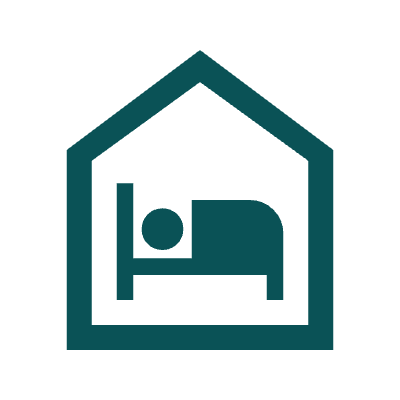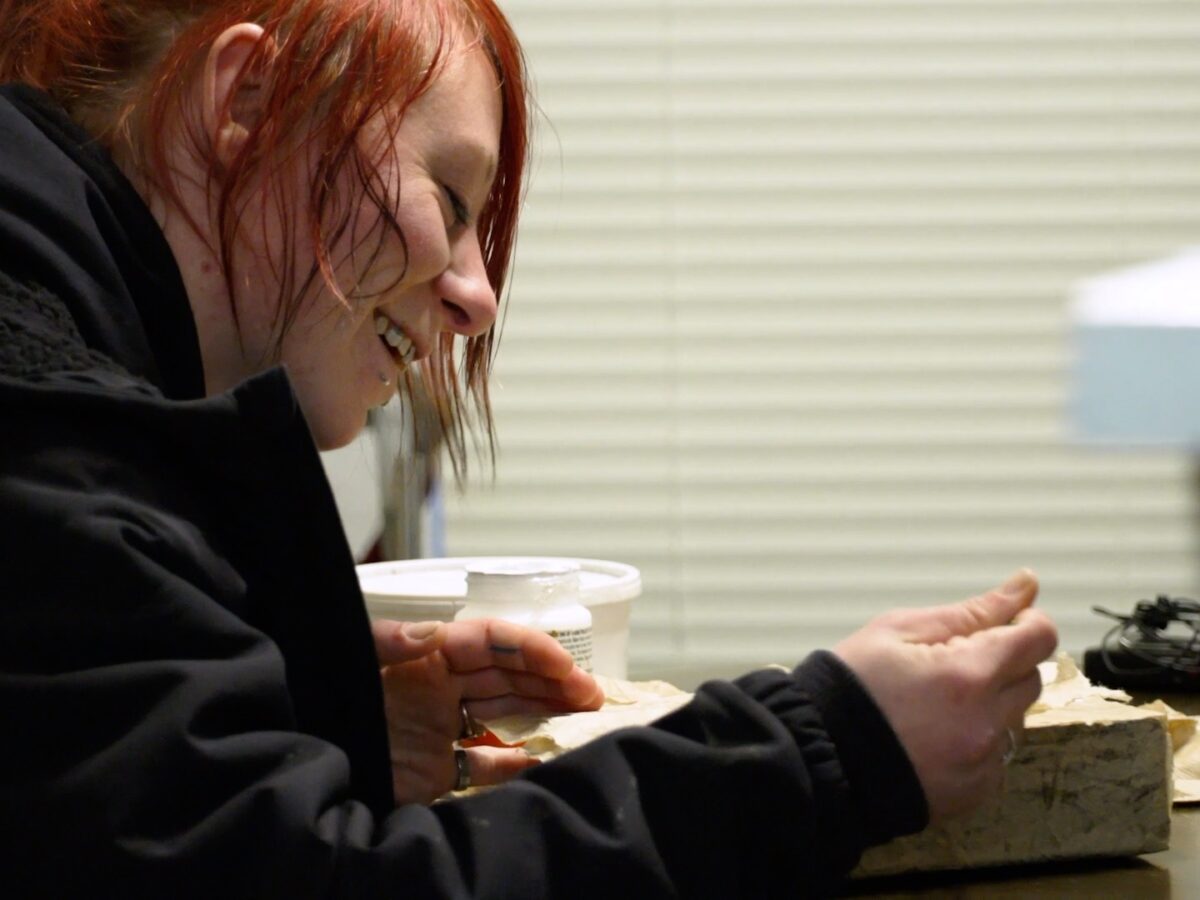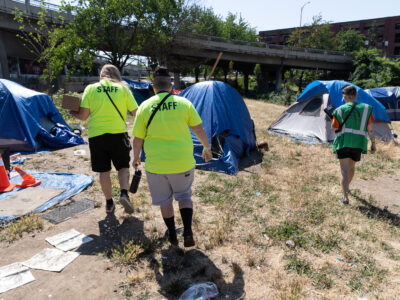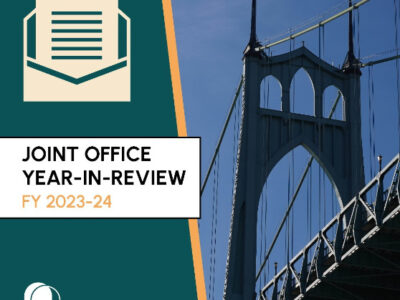Current initiatives
Oregon All In and Oregon Rehousing Initiative
Last year, Gov. Kotek directed counties across Oregon to achieve a set of rehousing, shelter and eviction prevention goals by Jan 10, 2024, declaring a state of emergency. Local governments began receiving emergency funding in late April 2023 and directed the creation of local Multi-Agency Coordination (MAC) groups to craft cross-jurisdictional plans to help achieve those goals.
Working together to address the humanitarian crisis on our streets, Multnomah County and the City of Portland re-housed, sheltered and prevented evictions for hundreds of households using their share of statewide emergency funding — meeting or exceeding a series of goals set by Gov. Tina Kotek’s office.
Outcomes for Multnomah County and the City of Portland
 234 households placed in housing
234 households placed in housing Exceeded goal to rehouse 186 households
 140 shelter beds created
140 shelter beds created Met goal of creating 140 beds.
 1,474 evictions prevented
1,474 evictions prevented Exceeded goal of preventing evictions for 1,426 households
Multnomah County and City of Portland meet or exceed every Oregon All In goal
Housing
- Goal: 186 households moved from homelessness back into housing
- Outcome: 234 households moved into housing
The Joint Office and providers, through the Multnomah County MAC Group, has housed 234 households using Oregon All In resources.
Partnership with the City of Portland was essential to achieving this goal. While a small number of households were rehoused directly from the streets, the vast majority of housing placements were from the city-shelter sites including the City’s Safe Rest Villages and Temporary Alternative Shelter Site (Clinton Triangle).
Temporary Alternative Shelter Sites and Safe Rest Villages, which in total provide 509 shelter units, are both city-led projects that began development in 2022 and 2021, respectively. They operate alongside more than 2,000 shelter beds in villages, motels or congregate sites funded through the Joint Office.
This placement work was in addition to hundreds of other households placed into housing with resources from other local funding streams.
Shelter
- Goal: 140 beds created
- Outcome: 140 beds created
In July 2023, the City of Portland opened Mayor Wheeler’s first Temporary Alternative Shelter Site(Clinton Triangle) using state emergency funding for operations accessed through the MAC group. The City funded the site capital construction while state emergency funding was used to purchase shelter pods. The site became operational within three months upon announcing the site.
Eviction Prevention
- Goal: eviction prevented for 1,426 households
- Outcome: eviction prevented for 1,474 households
Using the state’s emergency funding — plus $1.2 million in federal funding — the County’s Bienestar de la Familia program expanded its work providing rent assistance and other supports to households who either had active eviction notices or who were at risk of receiving one.
Bienestar’s work involves reaching out to households on eviction court dockets, working with families who have a notice to vacate or who are otherwise at risk. Outreach workers either visit the courthouse or knock on families’ doors directly.
The County allocated additional resources to support this work after learning the expected cost per household had exceeded the state’s initial estimates.
The effort to exceed the state’s goals came alongside other work over the previous 12 months preventing evictions for thousands of people using other local and federal resources.

Jessica's story


When I first heard housing was an option, I didn’t believe it.
After more than a decade on the streets, Jessica moved into her own apartment in December 2023, thanks to Oregon All In and provider Do Good Multnomah.
Next steps
While Oregon All In has ended, Multnomah County is continuing to work with the state on ongoing rehousing initiatives. In 2024, Gov. Tina Kotek extended her original executive order that created Oregon All In, and the state has launched the Oregon Rehousing Initiative that is carrying forward the work of Oregon All In. Multnomah County will be receiving $3.39 million in additional funding from the State to help support additional people’s move from homelessness. The funding will be used to house adults, but will also expand the focus to homeless families and youth — populations that have fewer housing opportunities compared to adult-only households. The goal is to house 100 households by June 30, 2025, as part of this initiative.





